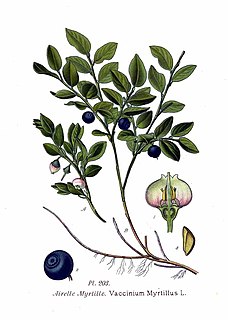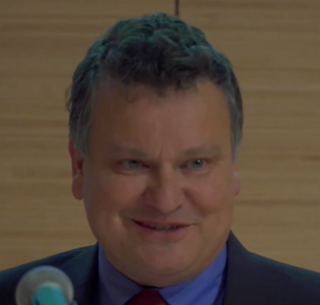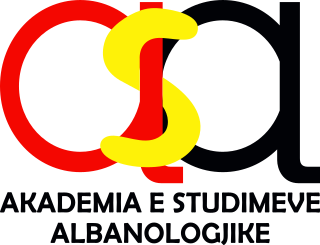Related Research Articles
Computational archaeology describes computer-based analytical methods for the study of long-term human behaviour and behavioural evolution. As with other sub-disciplines that have prefixed 'computational' to their name, the term is reserved for methods that could not realistically be performed without the aid of a computer.

Paleoethnobotany, or archaeobotany, is the study of past human-plant interactions through the recovery and analysis of ancient plant remains. Both terms are synonymous, though paleoethnobotany is generally used in North America and acknowledges the contribution that ethnographic studies have made towards our current understanding of ancient plant exploitation practices, while the term archaeobotany is preferred in Europe and emphasizes the discipline's role within archaeology.
Manfred Bietak is an Austrian archaeologist. He is professor emeritus of Egyptology at the University of Vienna, working as the principal investigator for an ERC Advanced Grant Project "The Hyksos Enigma" and editor-in-chief of the journal Ägypten und Levante and of four series of the Austrian Academy of Sciences, Institute of Oriental and European Archaeology (2016–2020).

Anton Zeilinger is an Austrian quantum physicist and Nobel laureate in physics of 2022. Zeilinger is professor of physics emeritus at the University of Vienna and senior scientist at the Institute for Quantum Optics and Quantum Information of the Austrian Academy of Sciences. Most of his research concerns the fundamental aspects and applications of quantum entanglement.

Vaccinium myrtillus or European blueberry is a holarctic species of shrub with edible fruit of blue color, known by the common names bilberry, blaeberry, wimberry, and whortleberry. It is more precisely called common bilberry or blue whortleberry to distinguish it from other Vaccinium relatives.

The Austrian Academy of Sciences is a legal entity under the special protection of the Republic of Austria. According to the statutes of the Academy its mission is to promote the sciences and humanities in every respect and in every field, particularly in fundamental research.
Girish S. Agarwal, Fellow of the Royal Society UK, is a theoretical physicist. He is currently at the Texas A & M University with affiliations to the Departments of Biological and Agricultural Engineering, Physics and Astronomy, and the Institute for Quantum Science and Engineering. Earlier he worked as Noble Foundation Chair and the Regents Professor at the Oklahoma State University. He is a recognized leader in the field of quantum optics and also has made major contributions to the fields of nonlinear optics, nanophotonics and plasmonics. In 2013 he published the textbook "Quantum Optics", covering a wide range of recent developments in the field, which has been well received by the community.
Charles Brian Rose is an American archaeologist, classical scholar, and author. He is the James B. Pritchard Professor of Archaeology at the University of Pennsylvania in the Classical Studies Department and the Graduate Group in the Art and Archaeology of the Mediterranean World. He is also Peter C. Ferry Curator-in-Charge of the Mediterranean Section of the Penn Museum, and was the museum's Deputy Director from 2008-2011. He has served as the President of the Archaeological Institute of America, and currently serves as director for the Gordion excavations and as Head of the Post-Bronze Age excavations at Troy. Between 2003 and 2007 he directed the Granicus River Valley Survey Project, which focused on recording and mapping the Graeco-Persian tombs that dominate northwestern Turkey.

Wolf-Dieter Heiss is an Austrian neuroscientist, Director of the Department of Neurology, University of Cologne and of Department of General Neurology at the Max-Planck-Institute for Neurlogical Research, Cologne (Germany).
Monika Ludwig is an Austrian mathematician, University Professor of Convex and Discrete Geometry at the Vienna University of Technology.
Klaus Oeggl is a retired Austrian botanist, and deals with palaeoecology and archaeobotany. He is well known for his studies on the life-circumstances and on the environment of the Neolithic glacier mummy „Ötzi“.

Thomas Henzinger is an Austrian computer scientist, researcher, and president of the Institute of Science and Technology, Austria.
Monika Ritsch-Marte is an Austrian physicist in the fields of biomedical optics, theoretical quantum optics and non-linear optics. She is a professor at the Medical University of Innsbruck and director of the Institute of Biomedical Physics.

The Academy of Albanological Studies is the main institution of albanology in Albania.

Robert Holzmann is an Austrian economist1 and the current Governor of Austria’s central bank, the Oesterreichische Nationalbank (OeNB).2,3 His term of appointment runs from September 1, 2019, to August 31, 2025.
The Österreichische Gesellschaft für Operations Research (OeGOR) is the professional non-profit society for the scientific field of Operations Research in Austria. The society is recognized by the International Federation of Operational Research Societies and its subgrouping, the Association of European Operational Research Societies, as the main national society for Operations Research in its country.

Andreas G. Orphanides is a Cypriot professor and university administrator. He is Professor of History and Archaeology at Philips University in Cyprus, after serving as Professor of History, Archaeology and Anthropology at European University Cyprus, where he was formerly Rector. He is a past president of both the European Association of Institutions in Higher Education and the European Quality Assurance Register of Higher Education.
Melinda A. Zeder is an American archaeologist and Curator Emeritus in the Department of Anthropology of the National Museum of Natural History, Smithsonian Institution. Her zooarchaeological research has revolutionized understandings of animal domestication.
Birgitta Eder is an Austrian archaeologist and Mycenologist. She is the director of the Austrian Archaeological Institute at Athens.
Eduard Arzt is an Austrian physicist. He is the recipient of the Gottfried Wilhelm Leibniz Prize, the highest research award of the German Research Foundation (DFG), the Acta Metallurgica Award, and the Heyn-Award, the highest award of the German Materials Society (DGM). He is a member of the German Leopoldina Academy of Sciences in Halle, and a corresponding member of the Austrian Academy of Sciences in Vienna. In 2020, Arzt was elected an international member of the US National Academy of Engineering
References
- 1 2 "Andreas G. Heiss". Austrian Archaeological Institute. Austrian Academy of Sciences . Retrieved 2022-08-01.